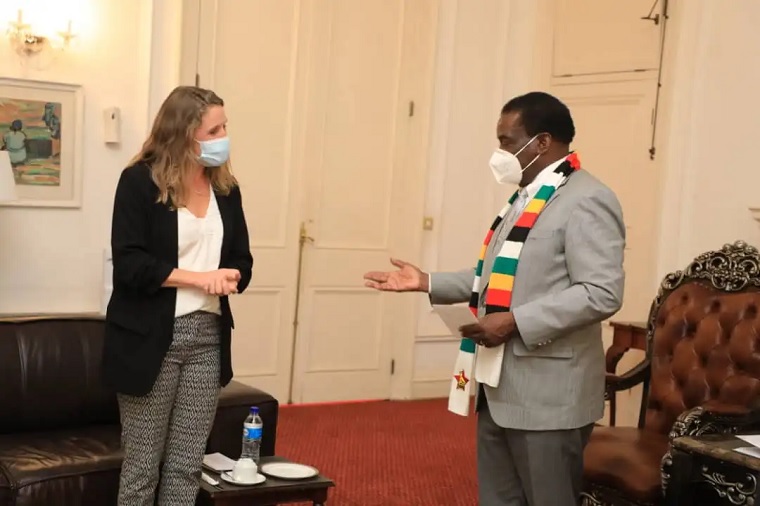 Zimbabwe President Emmerson Mnangagwa has warned foreign missions against meddling in the internal affairs of Zimbabwe saying his government will not hesitate to take appropriate action against such mission.
Zimbabwe President Emmerson Mnangagwa has warned foreign missions against meddling in the internal affairs of Zimbabwe saying his government will not hesitate to take appropriate action against such mission.
Writing in his weekly column in the Sunday Mail, Mnangagwa said while Zimbabwe was committed to the policy of engagement and re-engagement, its good naturedness and constructive intent should not be abused to meddle in the country’s internal affairs, thus undermining its sovereignty.
He said that this meddling was likely to get worse as the country heads for elections next year.
He cited a number of examples of how foreign missions had meddled in Zimbabwe’s internal affairs:
- Meeting individuals or groups without going through the Ministry of Foreign Affairs and International Trade, or other arms of government,
- Summoning individuals and groups to meetings without caring to inform Ministry of Foreign Affairs and International Trade, let alone portfolio ministries under which such individuals or interest groups fall. Even Churches had not been spared,
- Mobilising artists and communicators for partisan political ends,
- Using offices, agencies and personnel of the United Nations to further illegal foreign policy objectives, and
- Usurping or challenging law-making functions of Zimbabwe as a sovereign State.
Full article:
Non-interference in Zim’s domestic affairs for healthy inter-state relations
Lately, we have witnessed attempts at interfering in our internal affairs by some Foreign Missions accredited to our country. This worrisome propensity is likely to get even more blatant closer to our Harmonised General Elections slated for next year, in 2023. Needless to say, Government frowns upon this brazen effrontery against our sovereignty, which is in clear violation of basic provisions of international law and norms governing inter-state relations.
Article 3(1) of The Vienna Convention on Diplomatic Relations (1961) spells out functions of a Foreign Mission in a host country as follows:
(a) Representing the sending State in the receiving State;
(b) Promoting in the receiving State the interests of the sending State and of its nationals, within the limits permitted by international law;
(c) Negotiating with the Government of the receiving State;
(d) Ascertaining by all lawful means conditions and developments in the receiving State, and reporting thereon to the Government of the sending State;
(e) Promoting friendly relations between the sending State and the receiving State, and developing their economic, cultural and scientific relations.
Continued next page
(232 VIEWS)

